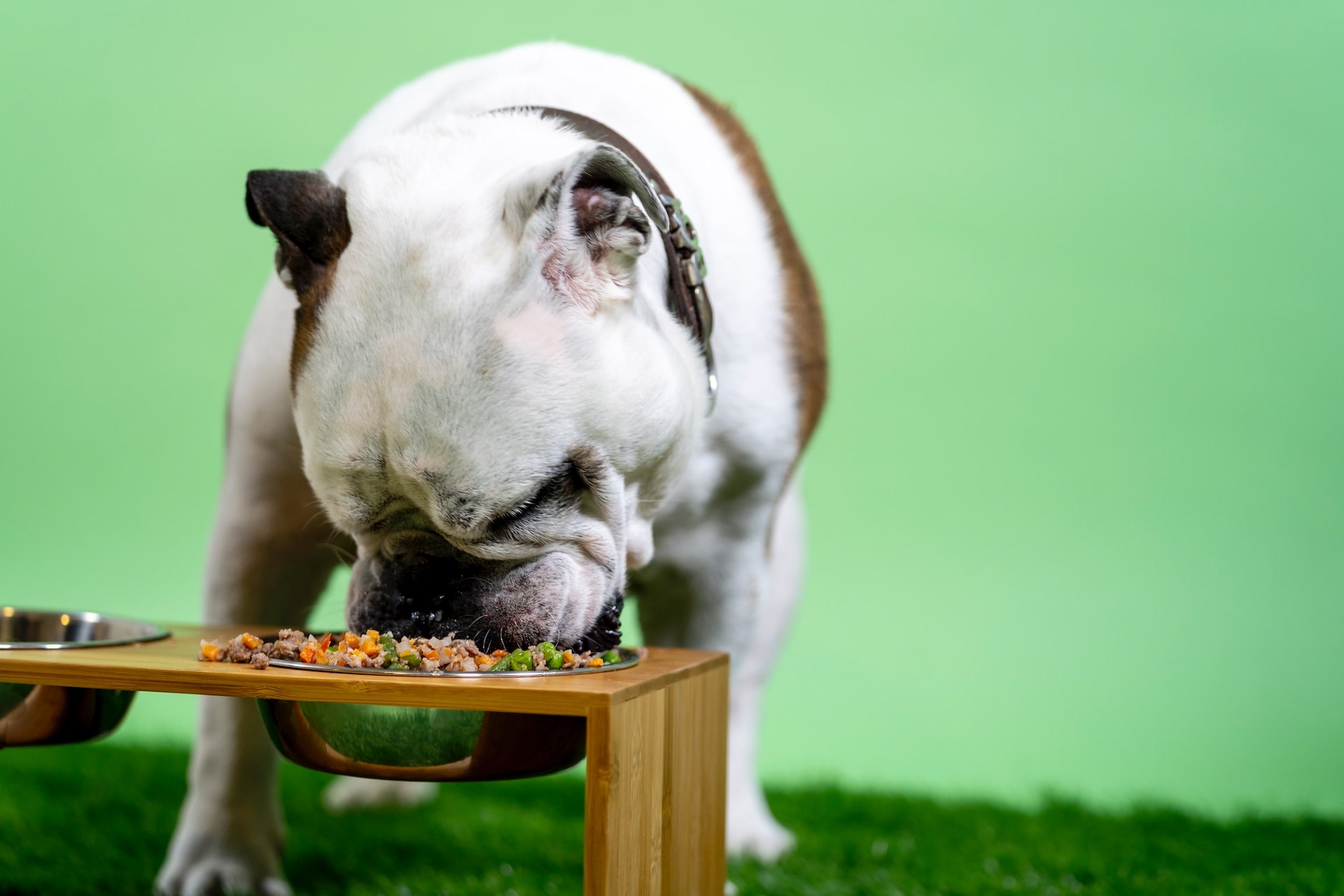Holistic pet care has been a pivotal aspect of my life for over two decades. My journey took a transformative direction in 2009 when I uncovered the myriad benefits of green-lipped mussel oil supplements. This revelation resonated deeply within the holistic veterinarian community, much more than with conventional veterinarians. Holistic care, with its emphasis on viewing pets as complete beings, prioritizes natural remedies and prevention. It considers various facets of a pet’s life, from their diet and environment to their emotional state. As a pet owner, my inclination toward more gentle and all-encompassing treatments has only grown stronger, making holistic care an increasingly popular choice among pet owners.
A vivid memory that further solidified my trust in holistic care involves my dog, Spencer. One day, Spencer had an unfortunate tumble into the pool, which resulted in a noticeable limp. Concerned, I rushed him to my vet, only to find out he had pulled a muscle. The prescribed medication, Rimadyl, however, did more harm than good. It severely upset Spencer’s stomach, leading to diarrhea. That distressing experience was the last straw; I vowed never to give Rimadyl to my dogs again. It reinforced my belief in seeking gentler, more natural alternatives for pet care.
Holistic Medicine vs. Western Medicine: Key Differences
When it comes to veterinarian care, understanding the distinctions between holistic and Western medicine can guide pet owners in making informed decisions about their pets’ health. Here is a breakdown of the primary differences:
Philosophical Foundations:
- Holistic Medicine: Focuses on treating the individual as a whole, considering the mind, body, and spirit. It believes that all these elements are interconnected and that imbalances in one area can affect others.
- Western Medicine: Primarily concentrates on treating specific symptoms or diseases. It often employs a reductionist approach, breaking down the body into individual systems and organs.
Treatment Approach:
- Holistic Medicine: Uses a combination of natural remedies, lifestyle changes, and therapies to promote healing and well-being. It emphasizes prevention and addressing the root causes of ailments.
- Western Medicine: Relies heavily on pharmaceuticals, surgeries, and other medical interventions to treat symptoms and diseases. It often focuses on immediate relief rather than long-term prevention.
Diagnostic Methods:
- Holistic Medicine: Uses a comprehensive approach, considering lifestyle, emotional well-being, and physical symptoms. Diagnostic methods might include observation, patient discussions, and some traditional tests.
- Western Medicine: Employs advanced technology and scientific tests, such as blood tests, MRIs, and X-rays, to diagnose diseases.
Patient Involvement:
- Holistic Medicine: Encourages active patient participation in the healing process. It often involves lifestyle changes, dietary adjustments, and self-awareness practices.
- Western Medicine: While patient feedback is considered, the healthcare professional determines the treatment plan, with patients following prescribed treatments.
Duration and Results:
- Holistic Medicine: Might take longer to show results as it aims to address the root cause and achieve long-term healing and balance.
- Western Medicine: Often provides quicker symptom relief but might not always address the underlying cause of the ailment.
Safety and Side Effects:
- Holistic Medicine: Natural remedies and treatments typically have fewer side effects, but it’s essential to ensure they don’t interfere with any existing treatments or conditions.
- Western Medicine: Pharmaceuticals and surgeries can have side effects or complications, which are usually discussed with patients beforehand.
Both holistic and Western medicine possess unique strengths and limitations. While Western medicine shines in acute care and advanced surgical interventions, holistic medicine offers a comprehensive view on health, emphasizing prevention and natural healing. An increasing number of individuals and practitioners advocate for an integrative approach, merging the best of both realms to achieve optimal health outcomes. Ultimately, the choice often hinges on personal beliefs, experiences, and the specific needs of the pet. It’s paramount for pet owners to stay informed and select a path that resonates with their values and ensures the well-being of their cherished companions.
Diet and Nutrition: Holistic vs. Western Perspectives on Pet Nutrition
Pet nutrition is a topic that often sparks diverse opinions, especially when comparing holistic and Western veterinary approaches. Holistic veterinarians prioritize nutrition as a fundamental aspect of health. They champion natural, unprocessed foods, asserting that a diet mirroring an animal’s natural intake ensures optimal well-being. In contrast, Western veterinarians, while valuing nutrition, might favor commercially produced pet foods. They highlight the benefits of these foods, such as convenience and scientifically balanced formulations.
Holistic Viewpoint: Advocates of the holistic approach emphasize diets devoid of artificial additives, preservatives, and chemicals. They underscore the virtues of organic, raw, and natural foods, contending that such diets offer superior nutritional and health benefits. Holistic philosophy seeks to nourish pets in the purest manner, fostering overall health and disease prevention.
Western Viewpoint: Western veterinarians place trust in the research and development behind commercial pet foods. These foods are crafted to cater to the distinct nutritional requirements of pets across various life stages. Advocates argue that when these products adhere to high-quality standards, they present a comprehensive and balanced diet, making them a preferred choice.
In understanding both holistic and Western perspectives, pet owners are better equipped to make informed decisions about their pets’ dietary needs, ensuring tailored and optimal care.
Exploring Dietary Choices: From Natural to Fresh Foods
Dive into the various dietary options available for pets, understanding the benefits and philosophies behind each choice.
Natural Diets: Focus on foods free from artificial additives and chemicals. The goal is to mimic what animals might naturally eat in the wild.
Organic Diets: Emphasize foods grown without synthetic pesticides or chemical fertilizers. These diets offer a lower-toxin meal option for pets.
Raw Diets: Advocates believe in the benefits of feeding pets uncooked meats, bones, and vegetables, arguing that cooking can deplete essential nutrients.
Whole Foods vs. Processed: While processed pet foods offer convenience and longer shelf life, whole or fresh foods provide pets with a richer taste and potentially more nutrients, closely resembling their natural diet.
By understanding both holistic and Western veterinary perspectives on nutrition, pet owners can make informed decisions, ensuring their pets receive diets tailored to their individual needs.
Natural Stress Relievers: Holistic Approaches to Calming Your Pet
In today’s fast-paced world, not only humans but also our pets experience heightened levels of stress. Whether it’s due to environmental changes, separation anxiety, or the hustle and bustle of urban life, our furry companions often grapple with anxiety. Fortunately, holistic approaches offer gentle and natural ways to alleviate these stressors, ensuring our pets remain calm and content.
- Pet Massage: Just as humans benefit from therapeutic massages, pets too can find relaxation through gentle touch. Pet massage can improve circulation, reduce muscle tension, and create a bonding experience between the owner and the pet.
- Aromatherapy: Essential oils, when used correctly and safely, can have a calming effect on pets. Scents like lavender and chamomile are known to soothe and relax, helping pets unwind. However, it’s crucial to ensure any oils used are pet-safe and administered in appropriate amounts.
- Calming Music: Studies have shown that certain types of music, especially classical tunes, can have a tranquilizing effect on pets. Playing soft melodies can reduce anxiety during thunderstorms, fireworks, or when the pet is left alone.
By embracing these holistic techniques, pet owners can provide their companions with natural and effective stress-relieving solutions. It’s a testament to the power of nature and its ability to bring peace and balance to our pets’ lives.
Exercise and Mental Stimulation: Keeping Your Pets Active and Engaged
Much like us, our pets thrive on regular physical activity and mental engagement. Neglecting these aspects can lead to a host of issues, from obesity to behavioral problems. Holistic pet care recognizes the profound impact of exercise and mental stimulation on a pet’s overall well-being.
- Regular Play: Dogs naturally love activities like fetch, tug-of-war, or simply running around in a park. These activities not only keep them physically fit but also strengthen the bond between the pet and the owner. Cats, on the other hand, might prefer chasing laser pointers, pouncing on feather toys, or stalking moving objects, mimicking their natural hunting instincts.
- Interactive Toys: These are designed to challenge and engage pets. Puzzle toys, for instance, require pets to solve a problem to get a treat. Such toys stimulate their brains, keeping them mentally sharp.
- Mental Challenges: Training sessions, learning new tricks, or even navigating obstacle courses can provide pets with the mental stimulation they crave. It’s not just about physical exertion; it’s about making them think and learn.
Incorporating regular exercise and mental activities into our pets’ routines ensures they lead a balanced, healthy, and happy life. It’s a holistic approach that caters to both their body and mind, promoting overall wellness.
Avoiding Toxins: Creating a Safer Environment for Your Pets
Our homes, while comfortable and inviting, can sometimes harbor hidden dangers for our pets. From cleaning products to lawn chemicals, everyday items can pose significant risks. Holistic pet care emphasizes the importance of recognizing and eliminating these threats to ensure a toxin-free environment for our furry friends.
- Household Cleaners: Many conventional cleaning products contain chemicals that can be harmful if ingested or even inhaled by pets. Switching to natural or pet-safe cleaners can reduce these risks. Ingredients like vinegar, baking soda, and lemon can often serve as effective and safe cleaning alternatives.
- Lawn and Garden Chemicals: Pesticides, herbicides, and fertilizers might keep our gardens looking pristine, but they can be toxic to pets. It’s essential to choose pet-friendly products or, better yet, opt for organic gardening practices that shun chemicals altogether.
- Common Household Items: Items like antifreeze, rodent poisons, and certain plants (like poinsettias and lilies) can be deadly to pets. It is crucial to store such items securely and keep toxic plants out of reach.
- Outdoor Areas: If your pet frequents certain outdoor areas, ensure they are free from chemical treatments. This includes public parks or neighbors’ yards where treatments might be used.
By being vigilant and making informed choices, pet owners can create a safer, toxin-free environment for their pets. It’s a proactive step toward holistic care, prioritizing the long-term health and well-being of our beloved companions.
My Personal Experience with RAW Diet for Dogs

Embarking on the journey of pet care, I have always sought the best for my furry companions. Over the past 20 years, I’ve been blessed with the company of 6 Golden Retrievers. Tragically, cancer claimed three of them, a heart-wrenching reality many Golden owners face. While I have always been an advocate for holistic care, integrating both holistic and Western veterinarian practices, the question of diet remained a significant concern, especially for this breed.
In my pet care routine, the holistic approach of using the cellular spray, and green-lipped mussel oil gel cap has become indispensable. Our Cellular BOOST spray works to oxygenate the red blood cells, promoting better blood flow to all the organs. This, in turn, enhances the absorption of all the omegas and nutrients from the Essential OMEGAS. Additionally, the superfood properties of the green-lipped mussel ensure that everything remains well-lubricated. I genuinely believe these products have been instrumental in enhancing, and perhaps even extending, the lives of my dogs who battled cancer. However, I felt there was still room to further refine their diet.
After much research and a consultation with pet health expert Jody Teiche (https://jodylteiche.com/), I felt compelled to explore the RAW diet for both Sasha and Harley. The decision to transition was not taken lightly. Sasha, with her unique eating habits, was often more selective with her food, grazing rather than finishing meals in one go. In contrast, Harley, my ever-hungry Golden, was always on standby, eager to devour any of Sasha’s leftovers. Mealtimes became a challenge due to Sasha’s grazing habits. I often had to lift her food bowl multiple times, waiting for her to decide when she’d return to eat. Occasionally, it took her 3-4 visits to the bowl just to complete a single meal.
The results of the RAW diet were nothing short of astonishing. Within just a week, Harley expelled a black substance from his ears, an evident sign of his body undergoing a detox. This was a phenomenon I had never witnessed, despite his history of ear issues. As for Sasha, her dining habits underwent a complete transformation. She began to eagerly anticipate her meals, devouring each bowl put in front of her with enthusiasm. It was clear that both dogs love their new diet.
However, the RAW diet does come with a heftier price tag compared to traditional kibble. But witnessing their enthusiasm during mealtimes, it’s worth every penny. Honestly, I think feeding RAW is that missing link to their total health.
Pairing this diet with my two go-to supplements (Cellular BOOST and Essential OMEGAS) is a game-changer. All those rich nutrients in the RAW diet just get soaked up so much better.
And if that wasn’t convincing enough, the most unexpected benefit was the noticeable reduction in their waste. Their stools became significantly less frequent, a testament to the RAW diet’s nutrient-rich, filler-free composition.
Dental Health and the RAW Diet
We all understand the significance of dental health for our pets. By incorporating raw beef bones into Harley and Sasha’s diet, I’ve addressed many dental health concerns. Not only do the dogs love these bones, but the act of chewing also massages their gums, promoting better gum health. Additionally, these bones effectively remove tartar from their teeth, making their dental care truly remarkable.
In sharing this, I hope to shed light on the potential benefits of a RAW diet. It’s a decision that, for my pets, has made a world of difference.
In Conclusion: A Holistic Commitment to Pet Well-being
Navigating the vast landscape of pet care, it’s evident that our understanding of what’s best for our furry friends is continuously evolving. Holistic pet care isn’t merely a passing phase; it’s a heartfelt commitment to treating our pets as complete beings, deserving of all-encompassing and natural care. My journey, punctuated by the transformative effects of the RAW diet, underscores the profound benefits of such an approach.
Central to this holistic philosophy are products like Cellular BOOST and Essential OMEGAS. These are not just supplements; they are promises to our pets. Designed to nurture from the inside out, they encapsulate the very spirit of holistic care, ensuring every aspect of our pet’s health is addressed. Their role? To help our pets “Live Healthier, Longer, and Happier together.”
As guardians of our pets, our ultimate goal is to provide them with a life filled with health, joy, and vitality. Merging holistic practices with the right supplements paves the way for not just temporary relief but lasting wellness. Here’s to a future where every wagging tail and content purr is a testament to the harmonious blend of holistic and Western care.
Q & A
Q: What is holistic pet care, and how does it differ from traditional pet care?
A: Holistic pet care treats the whole animal, considering diet, environment, and emotional health. It emphasizes natural remedies and a comprehensive health approach, unlike traditional care which often targets specific symptoms.
Q: How do I find a local holistic Veterinarian?
A: Visit the American Holistic Veterinary Medical Association (AHVMA) website, (https://www.ahvma.org/). They offer a directory of holistic veterinarians by state or specialty.
Q: How can I naturally help my pet cope with stress?
A: Consider pet massage, aromatherapy, calming music, and creating a peaceful environment. These can reduce anxiety and promote relaxation.
Q: Why choose organic pet food over conventional food?
A: Organic pet food lacks synthetic pesticides, fertilizers, antibiotics, or growth hormones, offering a cleaner alternative.
Q: Why is mental stimulation vital for pets?
A: It keeps their mind active, curbs unwanted behaviors, and provides enrichment. Interactive toys and playtime offer exercise and cognitive challenges.
Q: How do I choose raw bones.
A: When choosing raw bones for your dogs, consider their size, opting for larger bones like beef knuckles for big breeds and chicken necks for smaller ones. Always provide raw, not cooked bones, as the latter can splinter. Monitor your dog while they chew to prevent choking and offer bones once or twice a week to avoid constipation. Store bones in the freezer and thaw in the refrigerator before serving. For dental health, raw bones can help remove tartar, but ensure they are not too hard to prevent broken teeth. Always consult your vet before introducing new items to your dog’s diet.
Q: What are the benefits of pet massage, and how can it enhance my pet’s well-being?
A: Pet massage offers a multitude of benefits for your furry companion. Firstly, it promotes relaxation and can help alleviate stress or anxiety. Regular massages can also improve circulation, leading to better skin and coat health. Additionally, massaging can aid in muscle recovery, reduce pain and inflammation, and increase flexibility. Beyond the physical benefits, pet massage fosters a deeper bond between the owner and the pet, creating a nurturing and trusting relationship. Just like humans, pets thrive on touch and affection, and a regular massage session can significantly enhance their overall well-being and happiness.
Q: How can Cellular BOOST and Essential OMEGAS supplements benefit my pet?
A: These natural holistic supplements treat your pet from the inside out, supporting overall well-being. They provide essential nutrients, promoting a healthier, longer, and happier life together.




